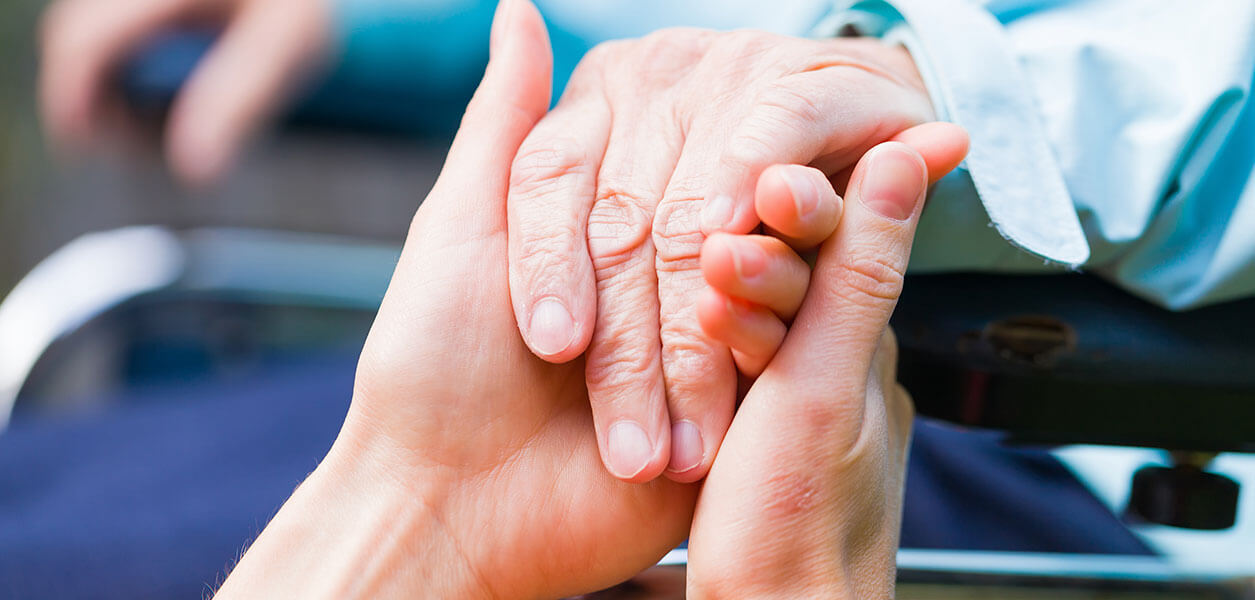My Father Passed Away and I Need Help Dealing With the Loss

Dear Benchmark:
As an only child, I was the primary caregiver for my father the last three years. He passed away from Alzheimer’s disease five months ago and I am still struggling to deal with his loss.
As his illness progressed, it became necessary for me to quit my job to care for him. Now that he’s gone, I find myself with a lot of free time and I think that makes his loss even more difficult.
Do you have any advice you can share for dealing with the loss of a loved one?
Kind Regards,
Jackie
Dealing with the Loss of a Loved One
Dear Jackie,
Alzheimer’s is such a difficult disease for families to cope with at every stage. Experts use the phrase “the long good bye” to describe it because it is so fitting. The disease is both physically and emotionally exhausting for caregivers.
In addition to trying to cope with your loss, I’m sure you are still recovering from your caregiver role. Five months isn’t very long. But I do have some advice I hope will help.
One of the first things I tell families who have lost a loved one is to not be hard on themselves. Many times after a loss, we beat ourselves up for not being able to move on as quickly as we’d like to. Quite simply, grieving takes as long as it takes and that is okay.
Hospice bereavement counselors usually follow up with families for 12 or 13 months after their loss for a reason. This is because the first year after a loved one’s passing is just plain difficult. The first Christmas or Hanukkah without them. Their birthday. A wedding anniversary. These can all be emotional days.
While everyone processes grief differently and in their own time, there are steps you can take that might help you feel better along the way:
• Talk about Your Loss: Friends and family might hesitate to bring up the topic of your father’s passing for fear of upsetting you. But if you initiate a conversation about your father, you might discover how eager other people who loved him are to talk. Sharing stories and reminiscing about your father might make you tearful, but it can also help you process your loss.
• Join a Support Group: Another way to work through your grief is to join a support group. Even if your family didn’t enlist the services of a local hospice organization, most hospices will still be happy to have you join one of their bereavement groups. If you are uncomfortable discussing your feelings in person, online grief support groups are another avenue to pursue. Daily Support and Grieving.com are two of many you can find online.
• Take Care of Yourself: Caregivers often develop unhealthy lifestyles because they are so busy caring for their family member. When you are grieving, it’s more important than ever to eat a well-balanced diet and engage in regular exercise.
• Get a Healthy Amount of Sleep: Many people who are grieving develop sleep problems. For some it is difficulty getting to sleep and for others it is trouble staying asleep. Sleeping too much can also be a concern. If you are having problems, talk with your physician. He or she can probably help you find ways to get a more restful night’s sleep.
• Spend Time with Friends: While you no doubt need some alone time to cope with your loss, don’t isolate yourself. Try to spend time with family and friends. If you don’t feel up to attending parties or large gatherings, invite a friend out for lunch or take in a movie with a loved one. Take a watercolor or cooking class with a friend.
• Consider a Volunteer Project: Volunteering your time to help others might also be a way to heal from your loss. If you’ve always enjoyed working with children, opt for an organization that advocates for kids. Or if animals are your passion, find an opportunity that will allow you to work with furry friends. Volunteer Match and United Way Worldwide can both help you connect with an opportunity at an agency that matches your interests. The only caution would be to wait until at least the one year anniversary of your father’s passing to volunteer with a hospice agency.
My last piece of advice is to talk with your primary care physician if you feel like your grief is getting worse or if it is impacting your ability to carry out daily tasks. A health professional can assess whether you are grieving or if you are suffering from a more serious form of depression that requires medical intervention.


